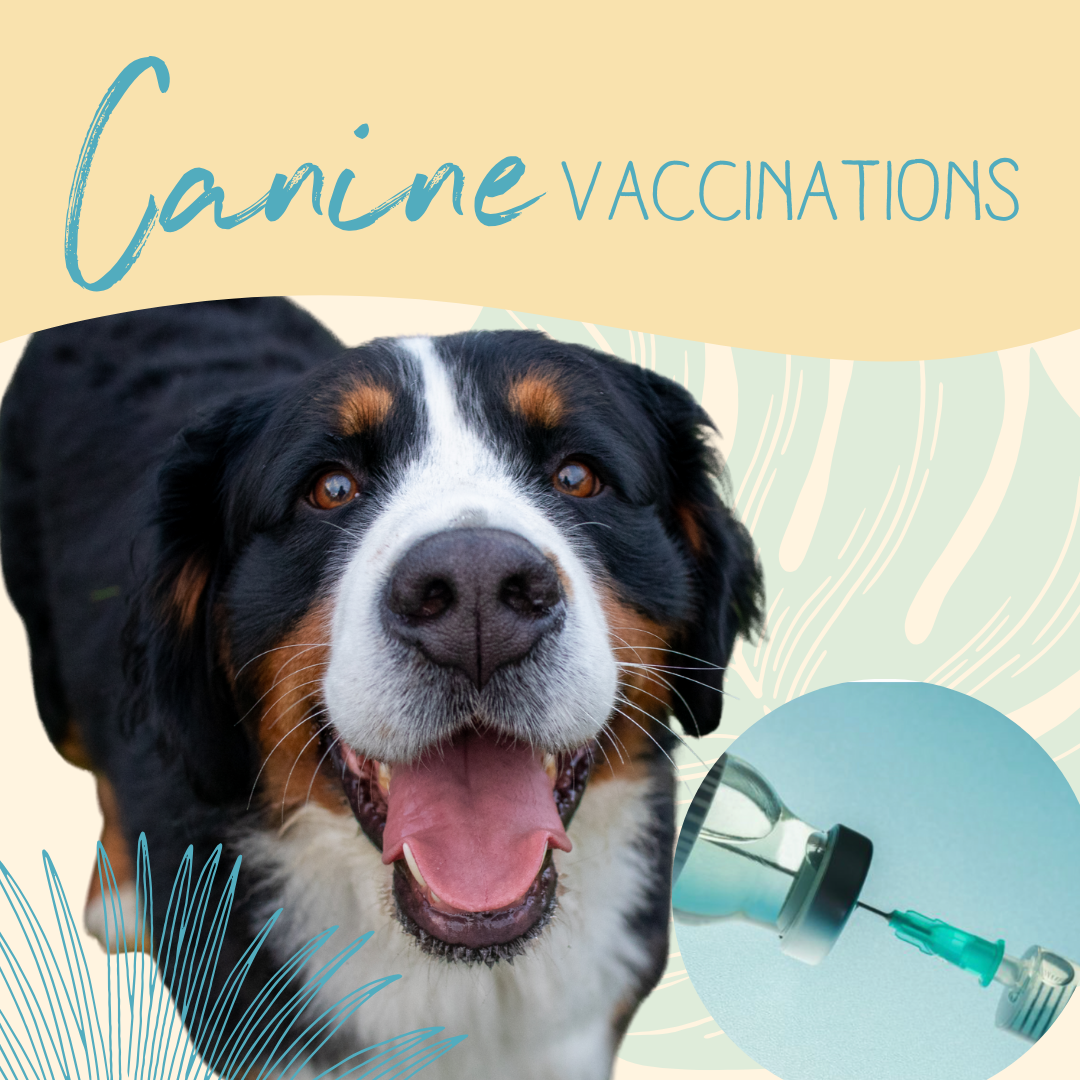
Canine Vaccinations
Many of us participate in vaccination for our dogs as part of annual preventative care. Vaccine names and the diseases they prevent can sound long and unfamiliar. Some may find themselves wondering what it all means and which vaccines are right for their dog as an individual. The following outlines information about the importance of canine vaccinations, the timing of vaccinations, and thediseases they prevent.
Why do we update canine vaccinations annually? Why do puppies need so many boosters?
As a puppy, vaccines are administered on a four week cycle, starting at 8 weeks of age, and again at 12 weeks of age, and 16 weeks of age. This phase of your puppy’s life is called the window of susceptibility. This is when puppies are no longer receiving antibodies from their mother’s milk, but do not yet have an immune system robust enough to defend the body against disease. Vaccinating at these ages ensures that your puppy’s body gains an appropriate amount of antibodies to prevent these diseases until their first birthday. Beyond the puppies series, canine vaccinations are administered annually, to every 3 years (depending on the vaccine type) throughout their life to maintain immunity.
DAPP Vaccine
The DAPP vaccine, commonly known as the combination vaccine for dogs, protects against four major canine diseases: Distemper, Adenovirus, Parvovirus, and Parainfluenza. Regular vaccination with DAPP is considered part of the core vaccination protocol recommended for all dogs, as any of these diseases are highly contagious and often life threatening if contracted. Below are more details about each of the diseases this vaccination prevents.
- Distemper, a severe and often fatal disease, affects a dog’s respiratory, gastrointestinal, and nervous systems.
- Adenovirus causes infectious canine hepatitis and can damage the liver, kidneys, spleen, and lungs.
- Parvovirus, highly contagious and often deadly, primarily strikes the gastrointestinal system, leading to severe vomiting and diarrhea.
- Lastly, Parainfluenza virus is a contributor to the kennel cough complex, affecting a dog’s respiratory system.
Leptospirosis
Leptospirosis is a bacterial infection caused by strains of the bacterium Leptospira.
This bacteria can be transmitted when mucus membranes such as eyes, nose, or mouth come in contact with urine from infected rodents, pigs, and other animals, or a contaminated environment, especially in tropical, wet climates. Once a dog has become infected, the leptospira migrate to the kidneys where they multiply and cause severe, irreversible damage. Leptospirosis is difficult to recognize and diagnose, as symptoms are not considered unique to this disease. As a result, the appropriate treatment may be inadvertently delayed, putting an infected dog at high risk of passing away.
Bordetella
Bordetella, commonly known as “kennel cough” is a bacteria that causes respiratory infections in dogs. It is typically transmitted through airborne particles, direct contact, or contaminated surfaces. This vaccination is recommended annually for dogs who frequent areas that other dogs may have been. This includes places such as the beach, neighborhood sidewalks, and dog parks. Many boarding and grooming facilities require this vaccination to be updated every six months.
Canine Influenza
Canine Influenza is a virus which affects the respiratory system of an infected dog. This virus has been mostly absent on the island until late 2023, when a small outbreak occurred. Because of its highly contagious nature, this vaccination is recommended for dogs who frequent areas that other dogs may have been, such as the beach, neighborhood sidewalks, and dog parks. Dogs who typically board or visit grooming facilities should be considered good candidates for this annual update as well.